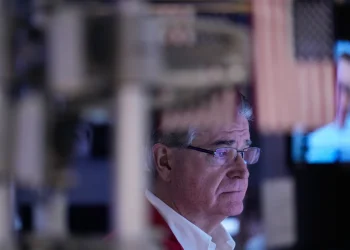China Holds Firm on Rare Earth Export Controls Despite Trade Truce with U.S.
Despite reaching a temporary trade truce with the United States, China is showing no signs of easing its grip on rare earth exports — a critical sector that Beijing continues to use as strategic leverage in ongoing geopolitical tensions.
As part of the 90-day agreement recently struck in Geneva, China pledged to suspend certain “non-tariff” countermeasures it had implemented since April 2. However, rare earth controls, imposed just two days later, remain untouched — leaving U.S. businesses in limbo.
What’s at Stake?
Rare earth elements like dysprosium and terbium are essential components in everything from smartphones and electric vehicles to advanced U.S. military systems like the F-35 jet and missile guidance platforms. China dominates the global supply, producing more than 60% of the world’s mined rare earths — and an even greater share of processed materials.
These minerals are not outright banned from export, but since April, Chinese authorities have required government-issued licenses for every single shipment. The bureaucratic bottleneck has caused weeks-long delays for industries that rely on a steady supply of rare earths — from tech manufacturers to defense contractors.
Conflicting Messages
U.S. Trade Representative Jamieson Greer told Fox News that China had agreed to remove its rare earth countermeasures as part of the Geneva truce. “If they don’t do those things, we’re going to be back in a different situation,” he said.
But on the ground, industry insiders say the reality looks very different.
“There’s no real evidence China is pulling back,” said Jon Hykawy, president of industry advisory firm Stormcrow Capital. “These controls are meant to safeguard Chinese interests, especially in critical sectors.”
Gracelin Baskaran of the Center for Strategic and International Studies (CSIS) echoed that view, calling China’s export licensing regime “here to stay” — possibly for the long term.
New Licenses, Not Looser Controls
After weeks of regulatory limbo, some Chinese companies have begun receiving export licenses under a “one batch, one license” system. This means a new permit is required for every shipment — no blanket approvals, no shortcuts.
Two Chinese producers confirmed they recently secured export permits for rare earth magnets used in high-performance applications like automotive and military equipment. One firm mentioned licenses had been granted for exports to Southeast Asia and Europe — including German automaker Volkswagen.
Still, insiders say there’s been no indication of an easing policy. Instead, China has doubled down on enforcement. On May 12 — the day the tariff cuts were announced — authorities launched a crackdown on mineral smuggling and held meetings with provincial regulators to tighten oversight across the supply chain.
U.S. Defense Firms in the Crosshairs?
Although China removed 28 U.S. companies from its export control blacklist — including aerospace and defense firms — it remains unclear whether Beijing will actually approve rare earth shipments destined for military use.
Exporters are now required to submit detailed information about end users, which may present hurdles for U.S. defense contractors bound by Pentagon confidentiality.
“China can easily delay or reject export licenses for national security reasons,” said Thomas Kruemmer of Ginger International Trade and Investment. “This gives Beijing control — and insight — into who’s getting what and for what purpose.”
James Kennedy, president of Three Consulting, said the licensing system effectively gives China “a looking glass” into U.S. industrial and military supply chains.
“You can still get the material,” he said, “but you’ll have to tell China exactly who it’s for — and that gives them a strategic advantage.”
Rare Earths as a Strategic Weapon
China’s dominance in rare earths — and its history of using that power in political disputes — is no secret. In 2010, Beijing halted shipments to Japan during a territorial spat. Last year, it banned exports of critical extraction technologies and added other key minerals like gallium and germanium to its restricted list.
Experts say the export controls are just another tool in China’s geopolitical playbook.
“Rare earths, cobalt, gallium — these are China’s strategic weapons,” Kennedy noted. “The uncertainty they create is just as powerful as an outright ban.”
And with Germany recently receiving some of the first export licenses for rare earth magnets, analysts say China may be using its licensing power to signal diplomatic preferences.
“By granting Volkswagen a license, China is sending a clear message,” said Baskaran of CSIS. “It’s reinforcing ties with Germany while keeping pressure on the U.S. intact.”
Bottom Line
Despite talk of cooperation, China is playing a long game when it comes to rare earths. The export controls may not be a full blockade — but they give Beijing immense power to regulate access, reward allies, and punish rivals.
As global supply chains grow more vulnerable, one thing is clear: China isn’t letting go of its rare earth grip anytime soon.
This article was rewritten by JournosNews.com based on verified reporting from trusted sources. The content has been independently reviewed, fact-checked, and edited for accuracy, neutrality, tone, and global readability in accordance with Google News and AdSense standards.
All opinions, quotes, or statements from contributors, experts, or sourced organizations do not necessarily reflect the views of JournosNews.com. JournosNews.com maintains full editorial independence from any external funders, sponsors, or organizations.
Stay informed with JournosNews.com — your trusted source for verified global reporting and in-depth analysis. Follow us on Google News, BlueSky, and X for real-time updates.














